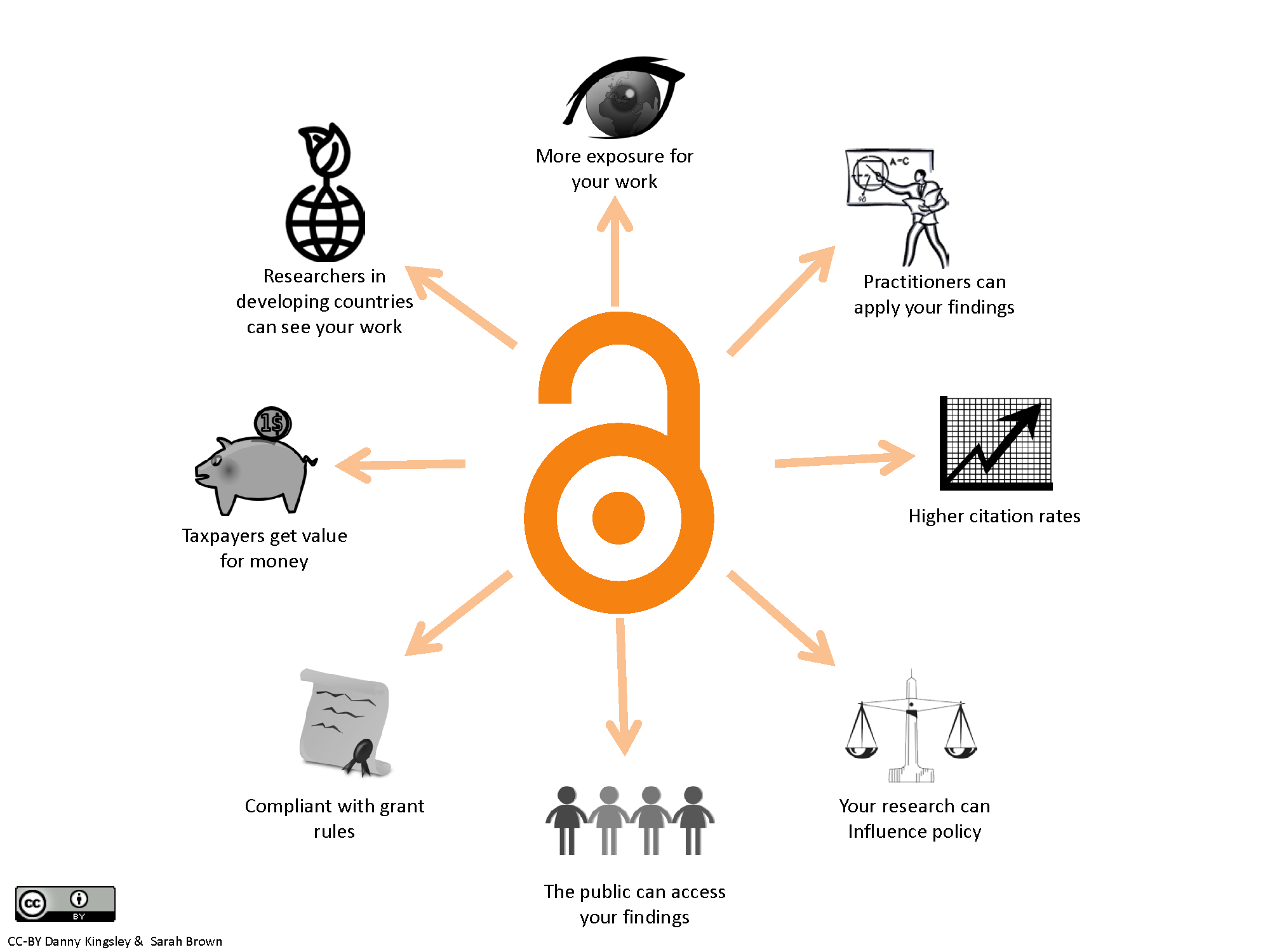The principle benefits of open access were first enshrined within the visionary Budapest Open Access Initiative statement released on 14 February 2002, and are still very much alive 19 years later.
The convergence of research sharing with technological distribution via the internet, it declared, would create an “unprecedented public good” by facilitating free, unrestricted, access to information for academics, scientists, students and the general public.
“Removing access barriers to this literature will accelerate research, enrich education, share the learning of the rich with the poor and the poor with the rich, make this literature as useful as it can be, and lay the foundation for uniting humanity in a common intellectual conversation and quest for knowledge” (Budapest Open Access Initiative, 2002).*

As well proving an invaluable asset to society, open access publishing has specific merits for you as an academic researcher.
-
You gain more exposure for your work
The traditional publishing route often means work is locked behind a paywall resulting in knowledge for those who can afford it. When publishing open access, your work will be widely discoverable, and freely available, for anyone regardless of ability to pay.
-
Professionals can apply your findings in their services
Free and unrestricted content enables professionals outside of academia, such as medical practitioners, to obtain access to up-to date research and information they can use for vital decision making processes, and influencing service development.
-
You can achieve higher citation rates
As Open Access scholarship increases the visibility of your work, studies have revealed that open articles can receive as much as 18% more citations in other academic papers. The more your work is cited the more likely it is to be read.**
-
Your work can be access by the general public
Publishing research in openly available format will allow access for anyone with an interest in your subject. This provides the potential for your work to become the foundation for future innovative research that can yield greater societal benefit.
-
You can achieve compliance with funding rules
In light of more and more funders mandating open publishing as a requirement for grant allocation, making your work free at the point of access is an easy way to ensure you are complying with rules associated with your financial support.
-
You can give taxpayers value for their money
With the majority of research being supported by public funded research councils, choosing open access publishing routes ensures you are giving back to the taxpayers who made your research possible in the first place, and have a vested interest in the results.
-
Your work can reach researchers in developing countries
Escalating journal costs underpin a glaring inequality in access to vital information for developing countries who may have difficulty in affording the subscriptions. Making your work open access is crucial for allowing them to access up to date knowledge for research development, at the same time, whilst increasing global visibility of your research.
* Budapest Open Access Intiative (2002) Available at: https://www.budapestopenaccessinitiative.org/ (Accessed: 16 October 2018).
** (2018) The state of OA: a large-scale analysis of the prevalence and impact of Open Access articles. PeerJ 6:e4375.Available at: https://doi.org/10.7717/peerj.4375 (Accessed: 16 October 2018).
![]()